Bio-Cybersecurity 2021 Symposium Speakers & Moderators
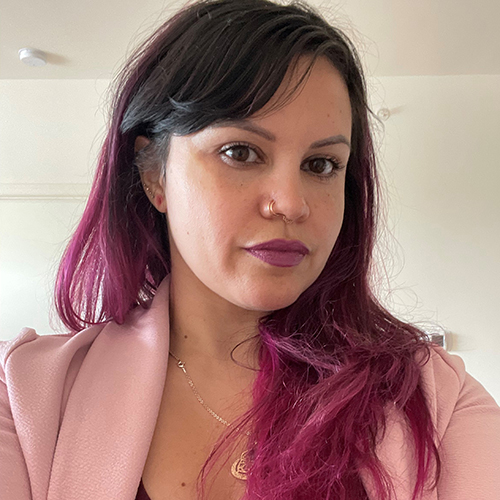
Nina Alli, executive director, Biohacking Village. Nina has worked in New York City hospital and outpatient settings managing the complexities of modernizing legacy systems within the healthcare industry, beginning when electronic medical records, their associated IoT devices, and connectivity of Applications were conceptually new and laws were being adapted to meet new technologies. From this idea, Nina has taken the lessons and experiences to grow Biohacking Village over seven years from nine talks to five laboratories designed to engage and educate people on aspects that impact care practices to focus on biotechnology, citizen science and cybersecurity of the healthcare industry and the biomedical ecosystem. Nina has also worked on a microfluidic device to reduce the time for lab results to thirty minutes.
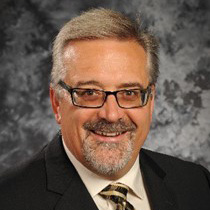
Wayne Austad, CTO, National & Homeland Security at Idaho National Laboratory, chief R & D officer, CyManll Manufacturing Innovation Institute. Mr. Wayne Austad has worked at INL for over 28 years with more than 20 years of experience building impactful national security programs. As CTO for National & Homeland Security he: 1) Provides leadership and strategy for the collaborative R&D, infrastructure, and partnerships needed for critical programs, 2) Acts as Chief R&D Officer for CyManII, a DOE institute led by UTSA focused on economically viable and pervasive cybersecurity in automation and supply chain, 3) Leads the Secure & Resilient Cyber Physical Systems Initiative for the Laboratory.
Previously as Technical Director of INL’s Cybercore Integration Center, Mr. Austad created the Cybercore Program Office and led outreach to agencies, national labs, and academic institutions to build a collaborative, interdisciplinary teaming environment linked to a new Research & Education Campus at INL. As a Director of INL’s Mission Support Center, now part of Cybercore, Mr. Austad led a senior technical group that developed new methods for analysis of targeted cyber threats, provided technical context for mitigation priorities, and created new paradigms for information sharing between industry infrastructure owners, threat analysis teams, and government leaders. He also served as the Director of the Special Programs Division, which developed special technology and analysis for defense and intelligence agencies in advanced materials, trace detection, nuclear non-proliferation, electronic warfare modeling, information operations, and wireless communications systems.
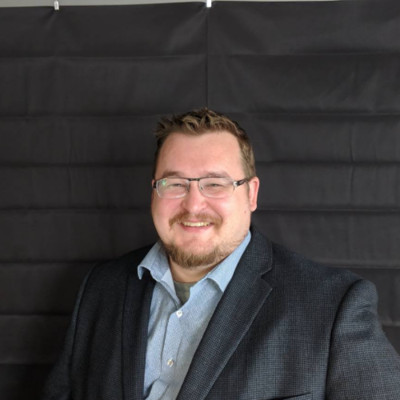
Owen Redwood, Principal Security Researcher at Research Innovations, Inc. Dr. Redwood earned his M.S. and Ph.D. degrees in Computer Science from the Florida State University, focusing on vulnerability research and virtualization research of cyber physical systems. Dr. Redwood earned his B.S. in Computer Science from the Georgia Institute of Technology. His research background spans IT and OT vulnerability research, reverse engineering, cyber physical systems virtualization research, hybrid approaches for static/dynamic/symbolic analysis, physical-impact payload development, and automated exploitation and mitigation. Dr. Redwood also created and maintains the “Offensive Computer Security” online open-courseware which has been adopted by faculty members at over 20 universities and is a top open-courseware on vulnerability research and exploitation. In a past life, Dr. Redwood was a member of the Raytheon Deep Red team for the DARPA Cyber Grand Challenge, where he focused on automating vulnerability discovery, vulnerability mitigation, and exploitation. He also previously worked for Sandia National Labs and another government cybersecurity research and development organization focusing on securing critical infrastructure. Dr. Redwood’s past cyber physical system vulnerability research has covered devices in energy critical infrastructure, oil/gas critical infrastructure, maritime systems, vehicular systems, building automation systems, and more. He co-authored the American Society for Health Care Engineering’s “Best Practices Framework for Cyber Physical Protection“, and has broken numerous medical devices. Dr. Redwood has the GICSP and CISSP certifications.
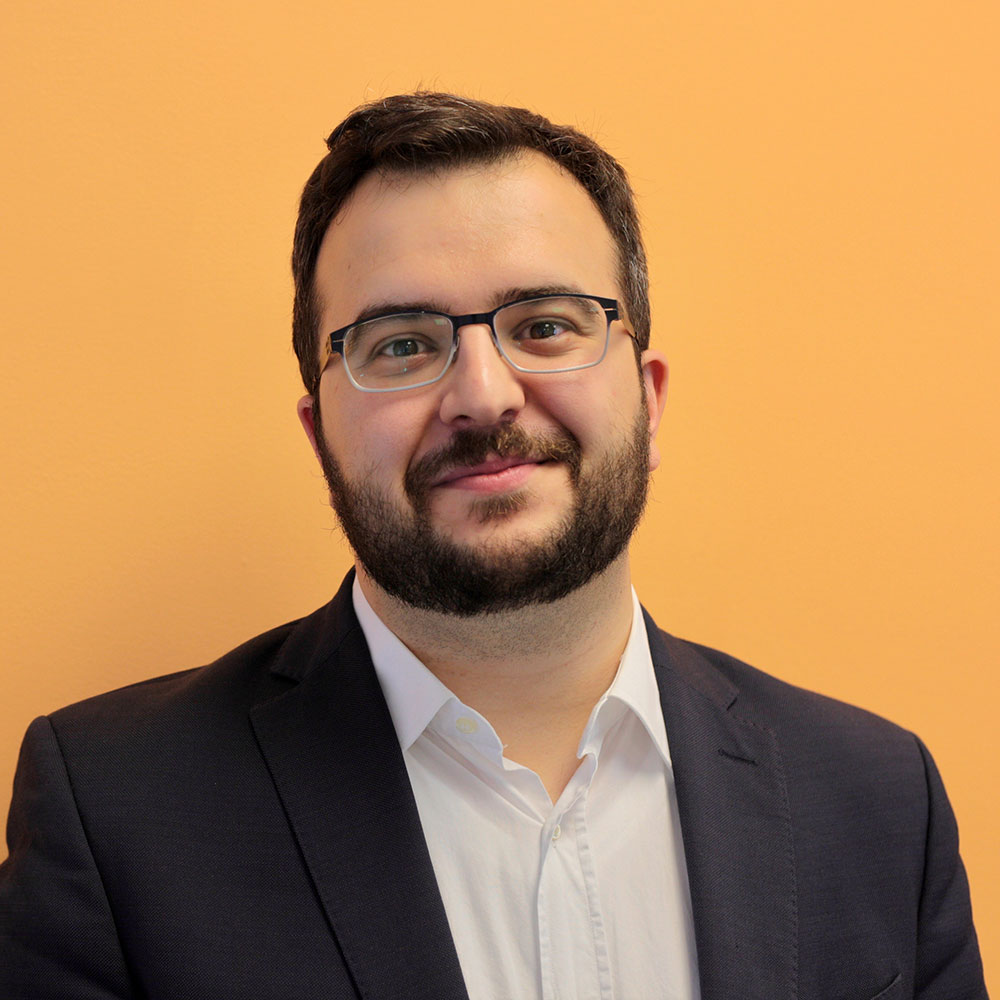
Charles Fracchia, CEO of BioBright & VP of Data at Dotmatics. Charles is the founder of BioBright, a Boston-based company that automates the secure data collection and analysis from laboratory and biomanufacturing environments. BioBright was originally funded by DARPA to create DarwinSync a scalable and end-to-end encrypted data collection and analytics system. In June 2020, BioBright was acquired by Dotmatics, and in March 2021 merged with Insightful Science to create an end-to-end cloud and data-centric portfolio from computer-aided design to secure data aggregation and analytics. BioBright continues to operate as a wholly owned subsidiary based in Boston, MA.
Charles received his graduate education between the MIT Media Lab and Harvard Medical School and obtained his bachelor’s degree from Imperial College London. Charles gained critical experience from his work at IBM Research and Ginkgo Bioworks where he was respectively the first synthetic biologist and first full-time person outside of the founding team. He has received a number of awards including MIT Technology Review’s 35 under 35, IBM PhD fellowships and the Extraordinary Minds fellowship.
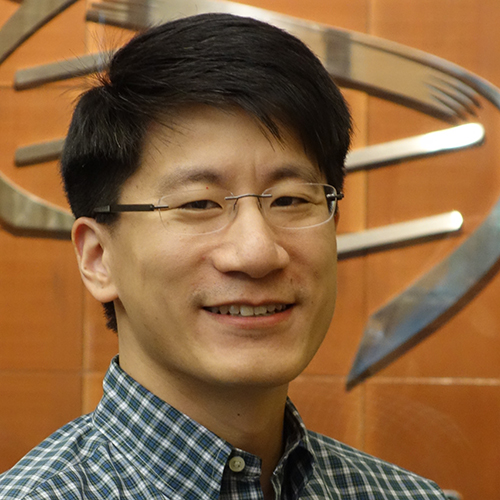
Kelvin Lee, director, National Institute for Innovation in Manufacturing Biopharmaceuticals & Gore Professor of Chemical & Biological Engineering, University of Delaware. Kelvin is Director of the Manufacturing USA National Institute for Innovation in Manufacturing Biopharmaceuticals (NIIMBL) and he is the Gore Professor of Chemical and Biomolecular Engineering at the University of Delaware. He previously served as Director of the Delaware Biotechnology Institute. He received a BSE in Chemical Engineering from Princeton and PhD in Chemical Engineering from Caltech. He spent several years in the Biotechnology Institute at the ETH in Zurich, Switzerland and also completed a postdoc in Caltech’s Biology Division. Prior to his current appointment, he was on the faculty at Cornell University where he held the titles of: Samuel C. and Nancy M. Fleming Chair Professor, Professor in the School of Chemical and Biomolecular Engineering, Director of the Cornell Institute for Biotechnology, and Director of the New York State Center for Life Science Enterprise.
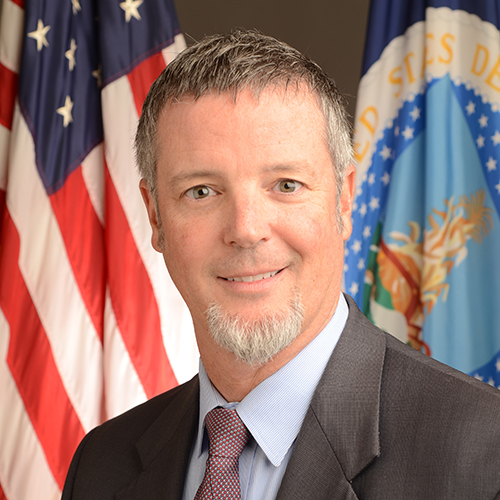
Doug McKalip, senior advisor to the Secretary, United States Department of Agriculture. Doug is in his 28th year of service with the United States Department of Agriculture and serves as a Senior Advisor to the Secretary. In this capacity he helps to develop and shape the policy and regulatory agenda of the Department with a focus on International Trade, National Security, Biotechnology, Research, and Renewable Energy. Mr. McKalip has delivered lectures on science policy and agriculture on five continents around the globe.
Mr. McKalip served as Senior Policy Advisor for Rural Affairs at the White House Domestic Policy Council from 2011 to 2015. At the White House, he provided direct advice and counsel to the President on issues involving farm, ranch, and trade policy. During his tenure, Mr. McKalip laid the framework for the formation of the White House Rural Council, helped coordinate the Administration’s response to the drought of 2012-2013, and provided policy leadership for the White House on agriculture legislation, including traveling with the President of the United States. Doug also served as a Confidential Assistant to the Secretary of Agriculture from 2009-2011 and Senior Advisor to the Secretary, where he handled all policy issues relating to agriculture biotechnology, coordinated federal policy for the Advisory Committee on Biotechnology & 21st Century Agriculture. He also coordinated initiatives of the White House Rural Council and served as Acting Chief of Staff of USDA. From 2017 to 2021 he served as Senior Advisor in the Animal Plant Health Inspection Service (BRS).
Mr. McKalip was the Director of Legislative and Public Affairs for USDA’s Natural Resources Conservation Service from 2001 to 2009. Doug has worked on the development, passage and implementation of four Farm Bills from 1996 to 2014. He received the agency’s Civil Rights award for his work in expanding program opportunities to Tribes. Mr. McKalip also served as a White House Intern from 1994-1995 and as a Legislative Assistant to the U.S. Senate Appropriations Committee in 1992.
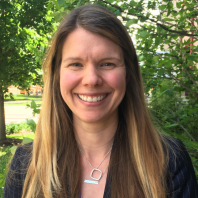
Dr. Rebecca Moritz, biosafety director, Office of the Vice President for Research, Colorado State University. Rebecca is a biosafety and biosecurity expert with a Bachelor of Science in Bacteriology and a Master of Science in Medical Microbiology and Immunology from the University of Wisconsin-Madison. She serves as the Biosafety Director at Colorado State University and is also the Responsible Official for the university’s Select Agent Program. She is a Certified Biosafety Professional with the American Biological Safety Association International (ABSA) and a former ABSA Councilor. In October 2021, Moritz will become the President-Elect of ABSA International.
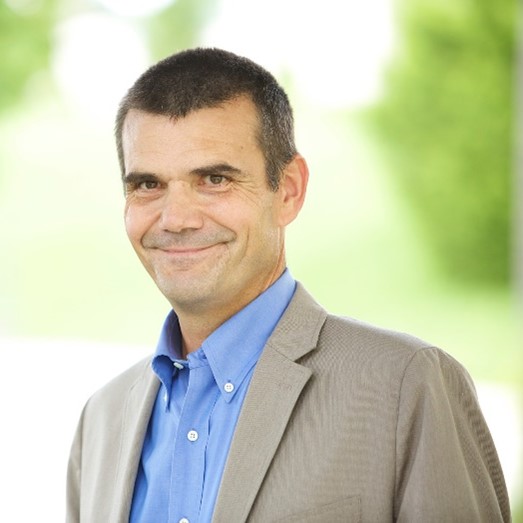
Jean Peccoud, professor, Department of Chemical and Biological Engineering and the Abell Endowed Chair in Synthetic Energy, Colorado State University. Dr. Peccoud’s research program focuses on synthetic biology informatics. His group combines computational and experimental efforts to develop predictive models of behaviors encoded in synthetic DNA sequences. He is particularly interested in using methods from synthetic biology to develop a new generation of vaccines against emerging diseases. Peccoud is also actively engaged in efforts to understand the security implications of synthetic biology. He is the founding Editor-in-Chief of the journal Synthetic Biology published by Oxford University Press. Presentation: Certification of Engineered DNA Molecules
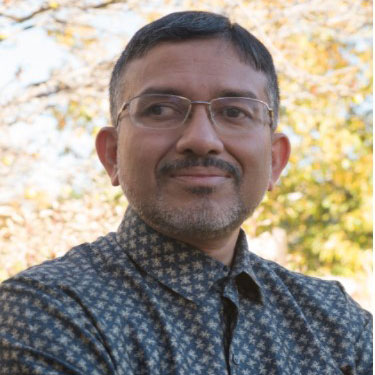
Dr. Indrajit Ray, Professor, Department of Computer Science, Colorado State University. His primary research interests are broadly in computer security and privacy with emphasis on security and privacy models, security risk modeling and management, and security protocol design using applied cryptographic techniques. Since March 2018, he has been on deputation to the U.S. National Science Foundation as a Program Director in the Secure and Trustworthy Cyberspace (SaTC) program, where he is responsible for managing projects with a focus on systems and network security. He is also the NSF SaTC representative to the U.S. Networking and Information Technology Research and Development (NITRD) program’s Cyber Security and Information Assurance (CSIA) Interagency Working Group (IWG), which is responsible for helping the U.S. Federal government in determining investment priorities in basic cybersecurity research.
He has published more than 150 technical papers. His research has been well funded through various federal agencies. He has advised and co-advised 10 Ph.D. students many of whom hold tenured positions in academia. He has also played active roles in the professional community through organizing conferences and workshops, technical panels, discussion forums, serving on various program review panels, and serving as editorial board member of different journals (currently two). He was the founder of the IFIP TC 11, WG 11.9 on Digital Forensics and served as its first Chair. He is a Senior Member of both the IEEE and the ACM and a member of IFIP TC-1
Dr. Kenneth Reardon, professor of Chemical & Biological Engineering and associate dean for research for the Walter Scott, Jr. College of Engineering, Colorado State University. Ken is Professor and Jud and Pat Harper Chair of Chemical and Biological Engineering, and holds joint appointments in several other science and engineering programs at CSU, including Cell and Molecular Biology and Biomedical Engineering. His research combines bioreactor analysis, systems biology, and applied microbiology and microbial ecology. His group’s current projects involve the analysis and engineering of bacteria and algae for the production of biofuels and other chemicals and the development of novel biosensors. Dr. Reardon is also the founder and Chief Technology Officer of OptiEnz Sensors, which is based on research from his laboratory. Dr. Reardon received the Faculty Excellence Award from the College of Engineering at CSU in 2009.
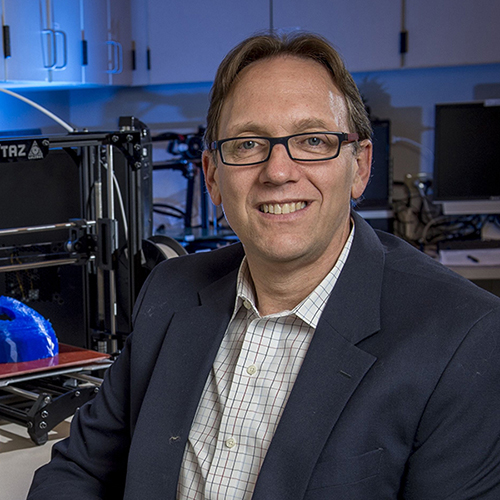
Dr. Alan Rudolph, vice president for research, Colorado State University. Dr. Rudolph is a former member of the Senior Executive Service, having served as the Director for Chemical and Biological Technologies Directorate, Research and Development Enterprise, Defense Threat Reduction Agency (DTRA).
Dr. Rudolph has had an active career in translating interdisciplinary life sciences into useful applications for biotechnology development. His experience spans basic research to advanced development in academia, government laboratories, and most recently in the nonprofit and private sectors. He has published more than 100 technical publications in areas including molecular biophysics, lipid self-assembly, drug delivery, blood substitutes, medical imaging, tissue engineering, neuroscience, and diagnostics. As a National Research Council postdoctoral fellow, his earliest work at the U.S. Naval Research Laboratory (NRL) demonstrated the translational value of strategies used by organisms that survive environmental extremes to preserve defense products such as biosensors and blood products for field deployment.

Sterling Sawaya, PhD is founder and CEO of GeneInfoSec, a startup focused on protecting genetic information with patented molecular cryptographic methods. His diverse expertise in bioinformatics, statistics, and biochemistry provides a unique view on emerging technological trends. He has a PhD in genetics from the University of Otago, a masters in genetics from the University of Washington, and a BSc in integrated-sciences from the University of British Columbia. After a postdoc at the Institute for Behavioral Genetics at the University of Colorado he founded GeneInfoSec to develop patented methods that will pioneer the use of molecular cryptography to improve genetic information security. Dr. Sawaya is a 2019-2020 fellow in the Emerging Leaders in Biosecurity Initiative at John Hopkins Center for Health Security and also serves on the consulting advisory board at Merrick and Company. Dr. Sawaya’s recent research on lab cybersecurity has uncovered the significant cybersecurity challenges that are faced in biotechnology.
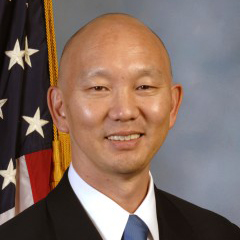
Edward You, supervisory special agent with the FBI in the Weapons of Mass Destruction Directorate. Edward is currently detailed as a Liaison Officer at the Department of Health and Human Services, Office of National Security. He is responsible for creating programs and activities to coordinate and improve FBI and interagency activities to identify, assess, and respond to biological threats or incidents. He supports FBI initiatives to build partnerships with the life sciences community, domestically and internationally, and leads efforts to identify and address potential security challenges in advanced biotechnology. His overall goal is to safeguard the scientific community, the life science research enterprise, and the U.S. bioeconomy.